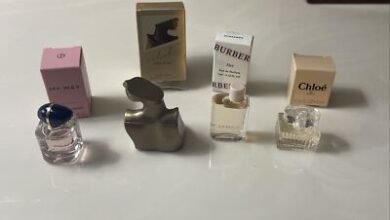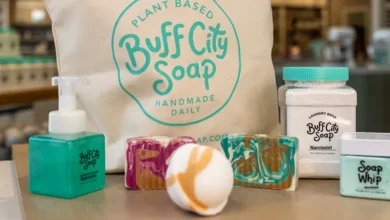The Ultimate Guide to Raising a Maine Coon Kitten: Fluff, Fun, and Feline Royalty

Introduction: Meet the Majestic Maine Coon Kitten
If you’ve recently welcomed a Maine Coon kitten into your life—or you’re thinking about it—get ready for a whirlwind of fluff, personality, and fun. Maine Coons aren’t your average kittens. They’re known as the “gentle giants” of the cat world, often compared to small dogs because of their friendly nature, loyalty, and playful antics.
What sets Maine Coon kittens apart is not just their size, but their intelligence and affectionate demeanor. These kittens grow into massive, majestic cats with lion-like ruffs and thick, water-resistant coats. But it all starts with that irresistibly cute, wide-eyed kitten stage. This guide will help you understand everything you need to know about caring for your Maine Coon kitten—from personality traits to grooming tips and everything in between.
What Makes Maine Coon Kittens So Special?

Let’s start with what makes these little furballs so unique. Maine Coons are one of the oldest natural cat breeds in North America, and they’re known for their rugged good looks and people-loving personalities. But when they’re still kittens, their traits are even more pronounced (and adorable).
A Unique Blend of Looks and Personality
Maine Coon kittens have a distinct appearance right from the start. Their fluffy ears often have tufts, their tails are long and bushy, and their eyes are large and expressive. But the magic isn’t just in their looks—it’s in how they behave. These kittens are curious without being overly mischievous. They’ll explore your home, but not destroy it. They’ll play hard, but they’ll also love hard.
Social Butterflies in Fur Coats
Unlike many other cat breeds, Maine Coons genuinely enjoy being around people. They often follow their humans from room to room, just to stay close. They’re not overly needy, but they do appreciate companionship. So, if you’re looking for a kitten who will greet you at the door and snuggle with you on the couch, this is your cat.
Slow but Steady Growers
Maine Coon kittens grow more slowly than other breeds. While most cats reach full size by about a year old, Maine Coons can take 3 to 5 years to fully mature. This means your kitten will stay in that playful, youthful stage for much longer—giving you more time to enjoy their kittenhood before they grow into full-blown feline royalty.
Bringing a Maine Coon Kitten Home: First Steps Matter
Bringing a new Maine Coon kitten into your home is exciting, but it also requires preparation. Unlike adopting just any cat, a Maine Coon kitten comes with some specific needs because of their size, coat, and playful personality.
Creating a Comfortable Environment
Before your kitten arrives, make sure your home is ready. Maine Coons love to climb and explore, so a cat tree is a must. They also enjoy cozy spots for lounging, especially ones near windows. Since they’re highly social, try to keep them in areas where people spend a lot of time.
You’ll also need basic supplies: a litter box (large size recommended), scratching posts, high-quality food, and plenty of toys. Don’t forget grooming tools—you’ll need them!
The Importance of Slow Introductions
If you have other pets, introduce them slowly. Maine Coons usually get along well with dogs and other cats, but a slow introduction is key. Let them sniff each other through a door or gate first, then gradually allow supervised interactions. Your kitten will likely be curious, not scared—but it’s best to let relationships develop naturally.
First Vet Visit and Vaccination Schedule
Your kitten’s first vet appointment should be scheduled within the first week. Maine Coons can be prone to certain genetic conditions like hypertrophic cardiomyopathy, so having a vet check them out early is important. They’ll also need to get started on a proper vaccination schedule and possibly flea/tick prevention depending on your area.
Feeding Your Maine Coon Kitten: Nutrition for Growth
One of the most important aspects of raising a healthy Maine Coon kitten is proper nutrition. Because they grow more slowly and get much larger than other cats, they need a diet that supports that kind of growth.
Choose High-Quality Kitten Food
Opt for premium kitten food that’s high in protein and fat. Maine Coons need plenty of energy for all that playing and growing. Look for brands that list real meat as the first ingredient and avoid fillers like corn and by-products.
Wet food can also be beneficial for hydration and kidney health. Some Maine Coons can be picky eaters, so offering a mix of wet and dry food is often a good strategy.
Portion Control and Feeding Schedule
Free-feeding isn’t recommended for Maine Coons, especially if you want to avoid obesity as they get older. Feed your kitten three to four times a day, gradually reducing to two meals by the time they’re around a year old. Always provide fresh, clean water—these big cats love to drink and often play in their water bowls!
Supplements and Treats
You usually don’t need to add supplements if you’re feeding a well-balanced diet, but some owners like to include omega-3s for coat health or taurine for heart support. Treats are fine in moderation, but avoid anything too fatty or sugary.
Grooming Your Fluffy Friend: More Than Just Brushing
Maine Coon kittens come with a gorgeous, shaggy coat—but that beauty requires a little maintenance. The good news is, their fur doesn’t mat as easily as other long-haired breeds, but you still need to keep up with grooming.
Regular Brushing is a Must
Start brushing your Maine Coon kitten early so they get used to it. A good grooming routine involves brushing 2–3 times a week using a slicker brush or comb. This removes loose fur, reduces shedding, and prevents tangles. Pay special attention to the ruff around the neck and the fluffy underbelly—these areas are mat-prone.
Nail Trimming and Ear Cleaning
Like any cat, Maine Coons need their nails trimmed every couple of weeks. It’s also smart to check their ears for wax buildup or signs of infection. Use a soft, damp cloth to wipe them gently—never use cotton swabs deep in the ear canal.
Bathing: Yes, They Might Like It
Believe it or not, many Maine Coons enjoy water. While you don’t need to bathe your kitten often, a monthly bath can help reduce dander and shedding. Use a gentle, cat-safe shampoo and keep the experience positive with treats and praise.
Training and Play: Yes, You Can Train a Maine Coon
Maine Coons are highly intelligent and respond well to training. You can teach them commands, tricks, and even how to walk on a leash. This breed thrives on mental stimulation, so training and playtime are essential.
Litter Box Training
Most breeders will have already started litter box training, but if your kitten needs help, place them in the litter box after meals and naps. Make sure the box is clean and easy to access. A larger box will serve them better as they grow.
Teaching Basic Commands
You can teach your Maine Coon kitten simple commands like “sit,” “come,” or “high five” using positive reinforcement. Clicker training works wonders. These cats are eager to please and love learning—just keep sessions short and fun.
Toys, Games, and Enrichment
Interactive toys, feather wands, laser pointers, puzzle feeders—your Maine Coon kitten will want them all. Rotate toys regularly to keep things exciting. Climbing structures and tunnels are also fantastic for keeping them active and entertained.
Common Health Concerns in Maine Coon Kittens
Like all breeds, Maine Coons are susceptible to certain health issues, many of which are genetic. Knowing what to look out for can help you catch problems early.
Hypertrophic Cardiomyopathy (HCM)
This is the most common heart disease in Maine Coons. It often shows no symptoms until later stages, but regular vet checkups and screenings can help detect it early. Breeders should test for this condition, so always ask about health clearances.
Hip Dysplasia and Joint Issues
Due to their large size, Maine Coons can be prone to joint problems. Providing them with supportive bedding and maintaining a healthy weight can help prevent issues as they grow.
Polycystic Kidney Disease (PKD)
Though not as common, PKD is another inherited condition to be aware of. Reputable breeders will screen for this, but regular vet checkups are still important as your kitten matures.
Conclusion: Your Gentle Giant in the Making
Raising a Maine Coon kitten is a rewarding experience filled with laughter, cuddles, and plenty of “aww” moments. These fluffy bundles of joy grow into stunning, loving companions who will be part of your family for years to come. While they do need a bit more care than your average cat, the payoff is absolutely worth it.
From their playful personalities to their luxurious coats and affectionate nature, Maine Coons are truly special. Whether you’re snuggling with them on the couch or watching them zoom around the house, life with a Maine Coon kitten is never boring—and always full of love.



